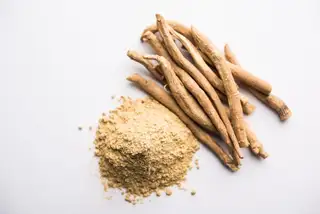
Fertility and Reproductive Health with Herbal Plants
Herbal plants have been an integral part of traditional medicine for centuries, offering natural remedies to support fertility and reproductive health. From ancient Chinese medicine to modern scientific research, the use of herbal plants in enhancing fertility has garnered significant attention for their potential benefits.
1. Overview of Herbal Plants in Fertility
Herbal plants contain bioactive compounds that can positively influence reproductive health. They are valued for their ability to regulate hormonal balance, improve menstrual cycle regularity, and support overall uterine health .
2. Commonly Used Herbal Plants
Some of the most recognized herbal plants for fertility include:
- Maca (Lepidium meyenii): Known to enhance libido and potentially influence androgen levels, which can impact fertility positively .
- Cinnamon: Used in traditional Chinese medicine to warm the interior and nourish yang energy, cinnamon has been shown to improve sperm production and quality, and may benefit women with PCOS .
- Tribulus terrestris: May help normalize cycles and create predictable ovulation in women with irregular ovulation, particularly due to PCOS .
3. Traditional Chinese Medicine (TCM) Approach
TCM takes a holistic approach to fertility, considering the balance and harmony of the whole body. It uses various techniques, including herbal medicine, to restore balance and enhance fertility outcomes .
4. Scientific Research on Herbal Plants
Recent studies have shown that certain herbal plants can improve fertility by enhancing ovarian function, fostering an optimal endometrium, and improving blood flow to reproductive organs .
5. The Role of Adaptogens
Adaptogens, such as Ashwagandha, are used in herbal medicine to help the body manage stress and potentially improve fertility by supporting hormonal balance and overall health .
6. Safety and Effectiveness
While many herbal plants are considered safe, their effectiveness can vary, and not all herbs may be suitable for everyone. For instance, Maca may not be helpful for women with PCOS due to its impact on androgen levels .
7. Integration with Modern Medicine
There is a growing interest in integrating herbal plants with modern reproductive technologies, such as IVF, to improve outcomes. Some studies suggest that combining herbal formulas with gonadotropins and other fertility drugs may enhance success rates .
8. Precautions and Considerations
It is crucial to consult with a healthcare professional before starting any herbal treatment for fertility. Some herbs may interact with medications or have contraindications for certain health conditions .
Conclusion
Herbal plants offer a wealth of potential benefits for fertility and reproductive health. With a solid foundation in traditional medicine and increasing scientific evidence supporting their use, these natural remedies can be a valuable addition to a comprehensive fertility plan. As with any health-related decision, it is essential to approach herbal treatments with knowledge, caution, and the guidance of a qualified professional .





